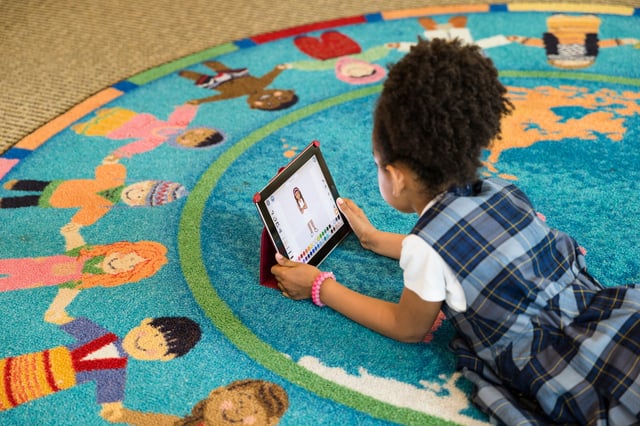The generation of parents with children in school now are essentially the pioneers of raising children in a digital age. We are digital immigrants to our children who are digital natives. Most of us were raised in a period without tablets, smartphones, laptops or even the internet so there is no body of knowledge, wisdom or experience passed down from previous generations for us to refer to in raising our children in an era where a vast array of dazzling technologies present so many challenges and opportunities. This means that we are left to our own devices (pun intended) to figure this all out.

I wish I could have started this article by saying that many parents often ask me for advice on the use of technology at home but truth be told, they do not. This might make you assume that everyone has this figured out already but having spent years watching and listening to children in my role as the Director of Innovation at Whitby School, I can say confidently that it is clear that we are all still working towards a definition of best practice and common sense when it comes to raising our children in the digital age.
I propose the following recommendations to assist you in building a solid foundation in digital citizenship for your children without the need to employ any kind of parental controls or other types of subterfuge that undermine your relationship with your children.
Remember, one of the goals is to help them develop self-management skills that will allow you to trust them to make smart choices in their use of technology:
1. Start having conversations about technology from the moment you start letting your children touch technology.
2. Frame conversations about their use of technology wherever possible with the expressions like trust, responsibility, self-management and making smart choices to help them internalize the concepts (see my previous article for more detail).
3. Reinforce the language your children are already use to hearing at school to assist in explaining why some things are okay and others are not. Employ words such as appropriate and inappropriate when explaining why you are not allowing them play certain games, look at a certain websites, watch certain movies or listen to certain songs.
4. Define boundaries as well as place, time and content limitations on their use of all devices as well as their time on the internet but be wary of doing this through parental controls.
5. Make sure your child has a voice in the process of creating and defining these boundaries and limitations (see number 6).
6. Create Technology Agreements that define the scope of the boundaries and limitations and make sure your children are invested in them by allowing them to create the documents themselves with guidance and veto power from you. This will facilitate them taking ownership and responsibility.
7. Make sure your child sees the use of any technology in your house as a privilege founded on trust so they are motivated to follow the agreements.
8. Consider creating different technology agreements for consumptive versus productive uses of technology where there is more freedom or flexibility with productive uses.
9. Make sure all computers are placed in a common area where screens are clearly visible. This not only allows you to see what they are doing but it also provides precious opportunities for conversations about what they are up to or interested in (see number 12)
10. Do not allow any devices into your children’s bedroom.
11. If the battery goes dead on your child’s laptop then do not rush to get it replaced. A dead battery will anchor a laptop to a fixed location which is a great way to get them using it in a common area consistently.
12. Get yourself and your children in the habit of referencing CommonSenseMedia.org for age recommendations on books, movies, music and video games. The reviews are great conversation starters.
13. Engage your children about their online lives as much as possible and challenge their ideas and beliefs.
14. Talk to your children about making smart choices both online and offline.
15. Talk to your children about how the internet can have an excellent memory.
Finally, keep in mind the following two points:
First, it will always be easier to go from an overly restrictive scenario to a less restrictive one than it will be to do the reverse. If you start applying these recommendations when your children are very young (eg. Primary) then they will grow into them and they will become the norm for your child.
Second, whether you realize it or not, you are role modeling the use of technology for your children at home everyday. The way you balance your use of technology with other activities in your life, the way you communicate with people online, the way you demonstrate respect for the people you interact with online, the way you leverage the internet to gain knowledge as an inquirer and to share knowledge as a citizen of the largest community in the world are all examples of the ways in which your attitude sets the stage to frame your children’s perception of the use of technology.

